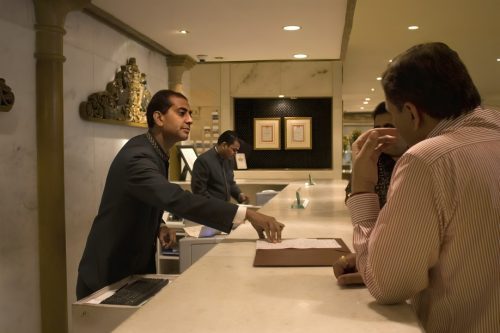Indian hospitality industry: Fueling economic progress, job growth, and the nation’s tourism renaissance- FHRAI report
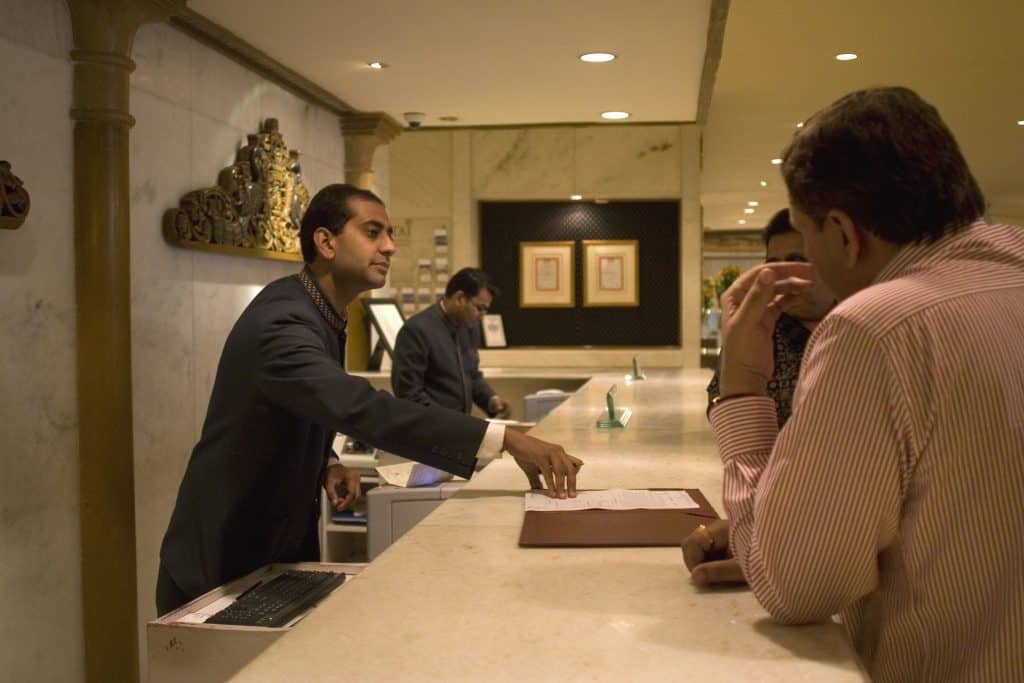
The hospitality industry, an essential part of the travel and tourism sector, plays a pivotal role in driving global economic growth, fostering employment opportunities, and contributing to social development. As a broad and dynamic industry, it encompasses hotels, resorts, restaurants, and other forms of accommodation and services that cater to travellers, both domestically and internationally. This industry is particularly important in countries where tourism is a major source of income and employment.
According to the World Travel & Tourism Council (WTTC), the travel and tourism sector contributed a remarkable 10.4% to global GDP in 2019, amounting to approximately US$ 9.2 trillion. This robust contribution underscores the sector’s ability to generate income and support national economies around the world.
However, the hospitality sector was severely impacted by the COVID-19 pandemic, causing a steep decline in tourism and travel activities. In 2022, this contribution dropped to 9.6% of global GDP, valued at around US$ 8.6 trillion. Despite this setback, the hospitality industry demonstrated resilience, bouncing back quickly as restrictions eased and tourism resumed.
Economic Outlook: Future Growth and Projections
The future of the hospitality industry is promising, as projected by Statista. The global travel and tourism sector is expected to see significant recovery, with its total contribution to GDP forecasted to rise to US$ 11.1 trillion by 2024.
Beyond this, the sector is anticipated to grow even further, reaching an estimated US$ 16 trillion by 2034. These figures indicate the sector’s strong recovery trajectory and its potential to surpass pre-pandemic levels, provided the right strategies are in place.
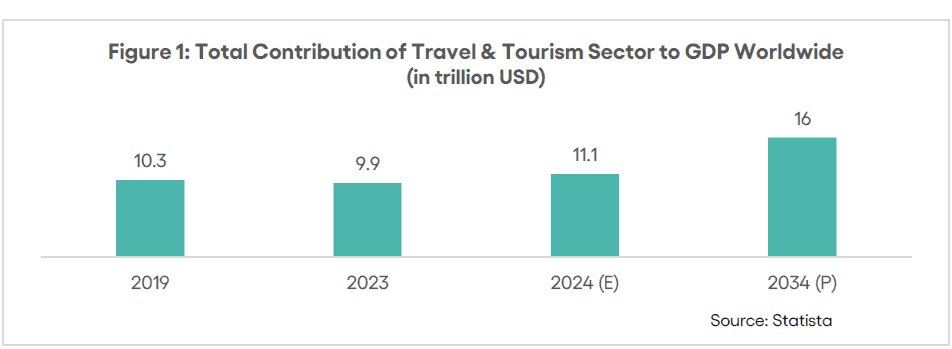
The hospitality industry itself, as a subset of travel and tourism, directly contributes around 5-6% of global GDP. This direct contribution highlights the industry’s immense impact on global economies, particularly in regions where tourism is a major economic driver. The industry’s growth also opens up new opportunities for businesses to innovate and adapt to the evolving needs of travellers, making it a key player in the global economic landscape.
Employment Opportunities in Hospitality
One of the defining characteristics of the hospitality industry is its labour-intensive nature. The industry creates a wide range of employment opportunities across various skill levels, making it a crucial employer worldwide.
In 2019, the hospitality and tourism industry supported 334 million jobs globally, representing 10% of the total workforce. This significant contribution reflects the industry’s ability to generate direct and indirect employment in areas such as hotel management, food and beverage services, travel agencies, and tourism support services.
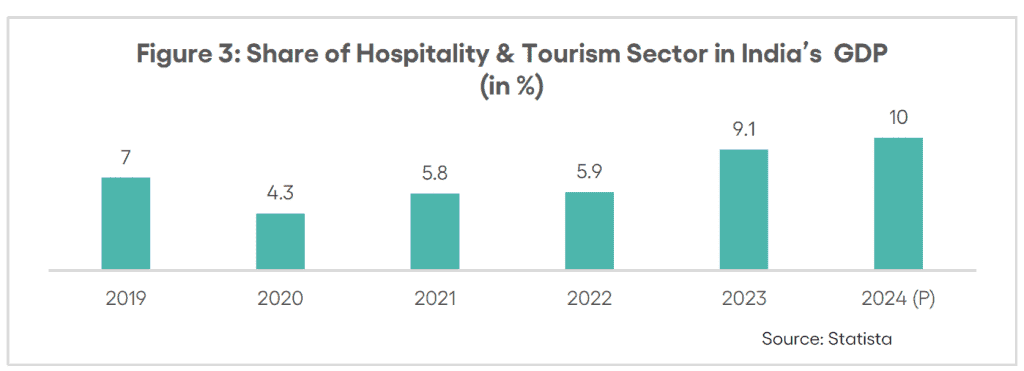
However, the pandemic had a considerable impact on employment in this sector, with the number of jobs supported by the industry falling to approximately 300 million in 2022. Despite this decline, the sector still accounted for 9.2% of global employment, demonstrating its enduring importance in the global labor market.
In India, the hospitality and tourism industry played a significant role in the economy before the pandemic, contributing 9.2% to the country’s GDP and generating around 42 million jobs.
As the country rebounds from the pandemic’s effects, India’s rich cultural heritage, diverse landscapes, and growing infrastructure are expected to position it as a prime destination for global travellers, further boosting employment and economic growth in the sector.
Operational Challenges in the Hospitality Industry
While the hospitality industry has shown resilience and potential for growth, it faces several operational challenges that impede its progress. These challenges are particularly evident in the ease of doing business within the industry, especially in India.
The study by FHRAI gathered insights from approximately 500 key stakeholders, including hotel owners, operators, regulators, and industry associations. These stakeholders provided valuable feedback on the current policies, regulations, and operational hurdles that affect the hospitality sector’s growth.
The findings indicate that several bottlenecks, particularly in regulatory compliance, licensing requirements, and delays in approvals, need to be addressed to unlock the full potential of the industry.
Regulatory Compliance and Licensing Issues
One of the most pressing challenges identified in the study is the complexity of regulatory compliance and licensing requirements in the hospitality industry. In many regions, businesses face a convoluted and often redundant regulatory framework, which leads to delays in obtaining necessary approvals and licenses.
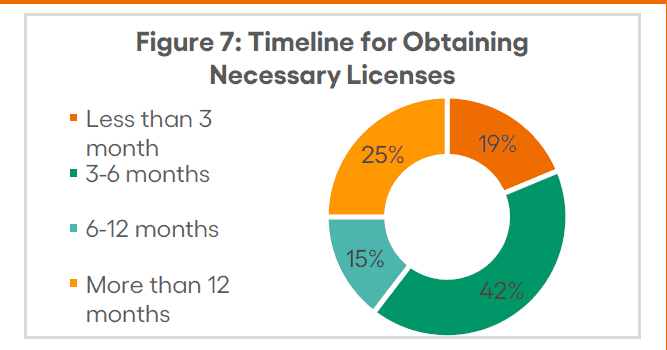
The multiplicity of licenses required to operate a hospitality business creates a significant compliance burden, particularly for small and medium-sized enterprises.
Moreover, the cost of compliance, including fees for licenses and approvals, adds an additional financial strain on businesses. These challenges not only delay the establishment and expansion of hospitality ventures but also limit their ability to operate efficiently and profitably. As a result, the sector’s growth potential is hindered, preventing it from reaching the levels of success it could otherwise achieve.
Recommendations for Improving Ease of Doing Business
The report emphasises the need for immediate reforms to improve the ease of doing business in the hospitality industry. To facilitate growth and efficiency, several key recommendations are proposed:
- Simplification of Regulatory Compliance: The regulatory framework should be streamlined to eliminate unnecessary bureaucratic hurdles. Simplified processes will reduce the time and cost associated with compliance, allowing businesses to focus on delivering quality services.
- Streamlining Licensing Requirements: The current system of multiple licenses and approvals needs to be reformed. Introducing a unified licensing system, or a single-window clearance mechanism, would greatly reduce delays and enhance operational efficiency.
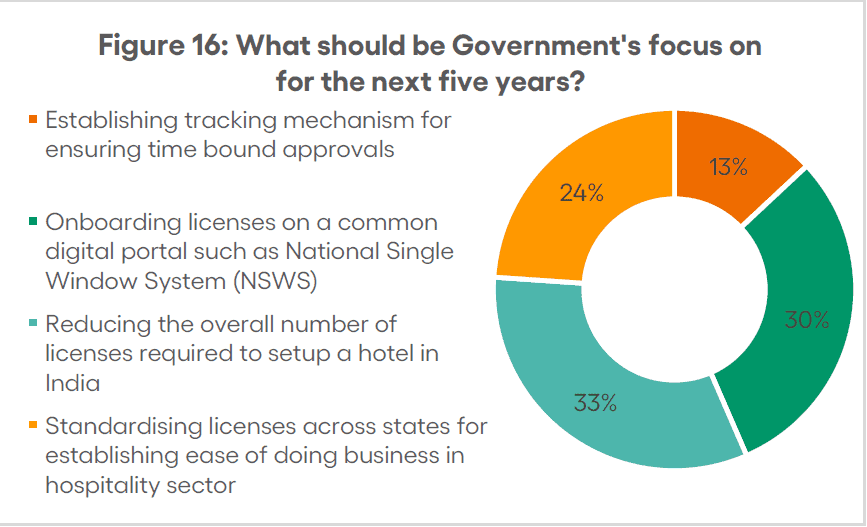
- Repealing Obsolete Laws: Many of the regulations governing the hospitality sector are outdated and no longer relevant to the current business environment. Repealing or updating these laws is crucial for ensuring the sector can operate in a more modern, business-friendly framework.
- Easing the Compliance Burden: Reducing the financial and administrative burden associated with regulatory compliance is essential. This includes lowering the costs of licenses and permits, as well as streamlining tax structures to promote business growth.
- Promoting Self-Regulation: Encouraging self-regulation within the hospitality industry can lead to higher standards of service and accountability, while reducing the need for heavy-handed government oversight.
These reforms, if implemented, could lead to significant improvements in the business environment for the hospitality sector, allowing it to expand more rapidly and contribute to broader economic goals.
Achieving Long-Term Growth and Vision 2047
The recommendations in this report align with India’s ambitious vision for the future. Under the “Viksit Bharat” goal, India aims to see the travel and tourism sector contribute US$ 3 trillion to the economy by 2047. Achieving this vision will require substantial reforms, investment in infrastructure, and a focus on creating a business-friendly environment for hospitality and tourism businesses.
“As per the projections under the Tourism Vision 2047, the tourism and hospitality sector is expected to be significant pillars of India’s economy, with the potential to contribute US$ 250 billion to India’s gross domestic product (GDP) by 2030, support 137 million jobs, and attract US$ 56 billion in Foreign Direct Investment (FDI).

“By 2047, the vision is to position India as a global leader in tourism, with the sector contributing US$ 1 trillion to GDP and driving robust economic transformation. India has set an ambitious target of a USD 3 trillion tourism economy by 2047.
“The Tourism Vision 2047 highlights the government’s ambitious roadmap to enhance India’s tourism offerings, invest in infrastructure, promote sustainability, and ensure ease of doing business for hospitality enterprises. However, achieving these ambitious goals requires addressing the current barriers faced by the industry”, explains Pradeep Shetty, President, FHRAI.
By addressing the operational challenges faced by the industry and implementing the suggested reforms, the hospitality sector can continue to drive economic growth, create jobs, and contribute to the broader development of the global economy.
The hospitality industry holds immense potential for economic recovery and growth, both globally and within India. However, to unlock this potential, operational challenges must be addressed, particularly in the areas of regulatory compliance and ease of doing business. With the right reforms in place, the industry is well-positioned to thrive, supporting jobs, economic growth, and social development on a global scale.
Read more: News
